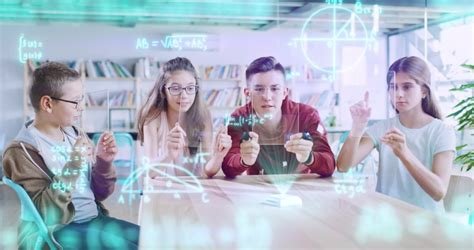Really thank you for this post§
In fact ther is a crucial question to ask: Do we ( as educators) just teach or educate? For what purpose? With which tools ? and what strategies should we adopt to cope with the speedy muting world?

I will share with you my reflections , and I hope you interact and enrich the discussion via your points of view and personal reflections!
Educating the future generation is an important responsibility, as it will prepare young people for success in their personal and professional lives and enable them to contribute positively to society. Here are some key considerations for educating the future generation:
Developing key skills:
In a rapidly changing world, it is important to equip young people with the skills they need to succeed in the future. These include critical thinking, creativity, collaboration, communication, and digital literacy. Educators can incorporate activities and projects that develop these skills into the curriculum and use technology to create engaging and interactive learning experiences.
Fostering a growth mindset:
A growth mindset is the belief that one's abilities and intelligence can be developed through hard work and dedication. Educators can help students develop a growth mindset by providing opportunities for them to learn from their mistakes, encouraging them to take risks and try new things, and praising their efforts and progress rather than just their achievements.
Emphasizing global awareness:
With globalization and increasing interconnectedness, it is important for young people to have a global perspective and understanding of different cultures and perspectives. Educators can incorporate global issues into the curriculum and provide opportunities for students to interact with people from different backgrounds and cultures.
Encouraging creativity and innovation:
In a rapidly changing world, it is important to foster creativity and innovation in young people. Educators can encourage students to think outside the box, develop creative solutions to problems, and pursue their passions and interests.
Supporting social and emotional learning:
Social and emotional learning (SEL) involves developing skills such as self-awareness, empathy, and responsible decision-making. Educators can incorporate SEL into the curriculum and provide opportunities for students to practice these skills through group activities, discussions, and role-playing.
Encouraging lifelong learning:
In a rapidly changing world, it is important for young people to develop a love of learning and a commitment to lifelong learning. Educators can model a love of learning, provide opportunities for students to pursue their interests and passions, and encourage students to see learning as a lifelong process.
In fact, educating the future generation requires a focus on developing key skills, fostering a growth mindset, emphasizing global awareness, encouraging creativity and innovation, supporting social and emotional learning, and encouraging lifelong learning. By taking these considerations into account, educators can help prepare young people for success in the future and enable them to contribute positively to society.
Rege